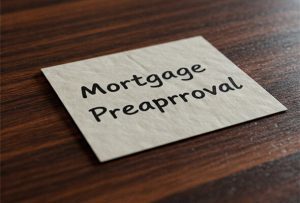When it comes to home loans in Dubai, understanding whether your mortgage is secured or unsecured is crucial in determining your financial path. In the dynamic UAE market, homebuyers and investors alike need expert advice on navigating the complexities of home loans.
This is where Sire Finance, a leading mortgage and financial consultancy based in Dubai, provides tailored insights that ensure you make the best decisions for your property investments. With a deep understanding of Dubai’s unique real estate market and financial landscape, Sire Finance helps you understand all the finer details of your mortgage.
Is A Home Loan Secured Or Unsecured Debt?
In Dubai, as well as in most parts of the world, home loans are generally secured debt. This means that an asset backs your loan—in this case, the property you purchase. This asset, your home, acts as collateral for the loan. If you fail to meet your mortgage repayments, the lender has the legal right to seize the property through foreclosure.
This structure offers the lender security and the borrower the possibility of securing a large loan at a lower interest rate due to the reduced risk involved. Mortgages are the most common form of secured debt in Dubai’s robust real estate market, with many residents and expats relying on them to finance home purchases.
This structure is similar globally, with home loans being secured against the property in many countries, including the US, UK, and Australia.
On the other hand, unsecured debt, such as personal loans or credit card balances, does not require collateral. If you default on these loans, creditors have no claim to your assets, although they can take legal action to recover the amount owed. This is also consistent across global markets, where personal loans and credit cards are unsecured.
What About Home Equity Loans And Home Refinances?
Home equity loans and home refinancing are also secured debts in Dubai. In both cases, the loan is secured by the equity in your home—the difference between the market value of your property and the remaining balance on your mortgage.
Home equity loans can help many UAE residents tap into the value of their property for personal or business use. In contrast, home refinancing can effectively secure a better interest rate or change the mortgage terms.
The same applies to many other global markets, where homeowners can use the equity in their properties to access additional funds.
Dubai’s property market has historically offered strong capital appreciation, making these options attractive to homeowners looking to leverage their real estate holdings.
Many countries globally see similar trends, where property appreciation encourages homeowners to explore home equity loans and refinancing. However, it’s important to remember that if you default on these loans, your home remains at risk, regardless of location.
Secured Vs. Unsecured Debt: How They Differ
Understanding the key distinctions between secured and unsecured debt is essential for navigating the financial landscape in Dubai or any other global market.
Here’s a breakdown of how they differ:
Collateral
A secured loan is backed by collateral, typically the home you purchase. If you fail to repay the loan, the lender can seize the property to recover the amount they lent you. This is why mortgages, home equity loans, and refinances are considered secured debt.
There is no collateral for unsecured loans, so the lender must rely on your creditworthiness and ability to repay. Personal loans and credit card debt are typical examples of unsecured debt, and these generally come with higher interest rates due to the increased risk for the lender.
Risk Level
In Dubai, the risk level of a loan varies depending on whether it is secured or unsecured, with significant implications for both lenders and borrowers. For secured loans, such as mortgages, the lender’s risk is mitigated by collateral, typically property. This collateral provides security for the lender, as it can be claimed in case of default.
As a result, lenders are often more flexible in their terms, including offering slightly more lenient credit score requirements. However, from the borrower’s perspective, while secured loans may come with more favorable terms, they carry the risk of losing the asset, such as a home or other valuable property, if the borrower defaults. This adds a layer of financial and emotional risk for the borrower, as losing the property could have significant long-term consequences.
On the other hand, unsecured loans, like personal loans, present a higher risk for lenders because there is no collateral to claim in the event of default. This increased risk leads lenders to be more cautious, often requiring higher credit scores to assess the borrower’s ability to repay.
As a result, unsecured loans generally come with higher interest rates and more stringent credit requirements. For the borrower, however, unsecured loans provide the advantage of not risking any physical asset, as the loan is not backed by collateral. While this reduces the borrower’s risk in terms of asset loss, the cost of borrowing is typically higher due to the lender’s increased exposure to risk.
In summary, secured loans reduce risk for lenders by providing collateral, but they expose borrowers to the potential loss of valuable assets if they default. Unsecured loans, conversely, shift the risk to the lender but offer borrowers the advantage of retaining their assets. This dynamic underscores the trade-off between loan terms and the types of risks each party is willing to take.
Credit Score Requirements
Credit score requirements differ significantly between secured and unsecured loans. For secured loans, such as mortgages, collateral reduces the lender’s risk. Because the loan is backed by an asset (typically property), lenders are generally more flexible with the borrower’s credit score.
While a good credit score is still beneficial, it is not as critical as it is for unsecured loans. In Dubai, this flexibility allows borrowers to qualify for loans, like mortgages, even with a slightly lower credit score, as long as the property value supports the loan amount.
In contrast, the credit score plays a much more central role in unsecured loans, where no collateral is involved. Since there is no asset to back the loan, lenders rely heavily on the borrower’s credit history and repayment track record to assess the risk.
A higher credit score improves the chances of loan approval and may result in more favorable interest rates. This trend is consistent not just in Dubai but also in markets like the US, UK, and Australia, where unsecured loans typically demand a higher credit score than secured loans.
Interest Rate
Secured loans typically have lower interest rates, especially in Dubai’s competitive real estate market, where government policies encourage homeownership. Mortgages in the UAE are offered at relatively favorable rates compared to unsecured loans, making them attractive to homeowners seeking long-term stability.
The same is true in other countries—secured loans often have lower interest rates, whereas unsecured loans tend to have higher rates due to the higher risk involved.
Loan Limits
Because secured loans are backed by collateral, lenders are willing to lend more significant amounts. Mortgages, for instance, allow you to borrow substantial sums, often up to 80-85% of the property’s value, depending on your credit profile and the lender’s criteria.
This is consistent globally. Unsecured loans, however, typically have lower lending limits, often capped based on income, credit score, and other financial factors.
Repayment Terms
Secured loans, particularly mortgages, offer longer repayment terms (up to 25 or 30 years in some cases). This allows borrowers to make smaller monthly payments over a more extended period, which can be a significant advantage in managing finances.
Unsecured loans, by contrast, usually come with shorter repayment terms and higher monthly payments. This means you’ll need to pay off the debt more quickly, which can strain your monthly budget.
Is a Second Mortgage Also Secured Debt?
Yes, a second mortgage in Dubai is considered a form of secured debt, just like the original mortgage. A second mortgage allows you to borrow additional funds against the equity in your property. However, second mortgages are riskier for lenders because, in the event of a default, the primary mortgage lender gets priority in claims. This is also true in other markets, such as the US and UK.
Second, mortgages can be valuable financial tools for homeowners in Dubai and globally, allowing them to access additional funds. However, the risks involved should be carefully considered. These loans typically have higher interest rates than first mortgages, and the repayment terms may be stricter.
Key Takeaways: Navigating Secured and Unsecured Debt in the UAE
When considering a home loan in Dubai or the UAE, it’s crucial to understand the implications of secured versus unsecured debt. In the UAE market, the property secures mortgages, home equity loans, and refinances, offering borrowers lower interest rates and longer repayment terms. However, borrowers also risk foreclosure if they fail to make payments.
While more flexible, unsecured debt has higher interest rates and stricter repayment terms. Whether you’re purchasing your first home or refinancing an existing property, it’s essential to have a solid understanding of the risks and rewards involved in both secured and unsecured borrowing.
For residents and expats in Dubai, Sire Finance offers expert consultancy to help you navigate the intricacies of the Dubai financial market. Whether you’re exploring mortgage options, home refinancing, or second mortgages, Sire Finance ensures you make informed, wise financial decisions.








